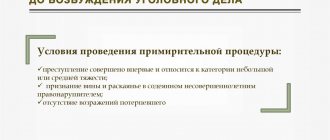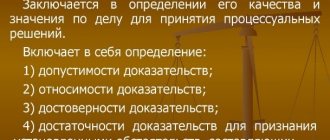The testimony of the accused is often not checked from all sides and aspects, and the norms by which charges are filed during the preliminary investigation are violated.
Any process can never proceed without the person accused of committing a crime. Unfortunately, in our time and in the criminal procedure itself, many gross violations are allowed. And this contradicts Article 172 of the Code of Criminal Procedure of the Russian Federation. Other omissions are also common. Multi-channel free hotline Legal advice on criminal law. Every day from 9.00 to 21.00
Moscow and region: +7 (495) 662-44-36
St. Petersburg: +7 (812) 449-43-40
Procedural form of involving a citizen as an accused
Any investigative actions against a person who has committed a criminal act assist in imposing a fair and lawful punishment.
What is needed for this?
Compliance with all procedural norms, establishing reliable facts and circumstances of the crime itself, a person’s guilt and other important aspects that one way or another play an important role in a serious criminal case.
Let's consider all the provisions of the law governing the procedure for 2017.
Before Article 51 of the Constitution of the Russian Federation, law enforcement agencies obliged the suspect to give true testimony incriminating himself. But even those same legislative norms cannot prevent violations.
Involving a citizen as an accused should exclude using him in another status - a suspect or already a witness. At the same time, these procedures provide for the appearance of procedural documents, one of which is a resolution. A person is considered accused from the moment when the decision was made, but not from the moment when it was signed.
When doing this, the following information must be provided:
- Compilation time.
- The city where the document was drawn up.
- The person who made the application.
- Full name of the person involved and date of birth of the accused.
- The incriminated act.
If a case is opened under several articles, then the resolution takes into account and describes the facts for each article of the code.
Such a resolution must already contain specific data on the accusation itself, otherwise the case will be sent for further investigation. The right of the accused himself to such defense is also violated, since the wording is very vague. If this resolution does not contain articles of the Criminal Code, its parts and paragraphs, then such a case is sent for additional thorough investigation. For example, when accusing small minors, characteristics of the accused are needed. This is very, very important for building the defense and the prosecution itself.
When a person is prosecuted for such a crime, for example, based on assessment factors, one cannot refer only to this criterion. The resolution itself must contain conclusions about the specific presence of this characteristic. Absolutely all conclusions must and in the first order must be based on the materials of the criminal case under consideration. Data about this crime, such as place, as well as time and method, play a significant role, therefore they must be reflected in the criminal case.
A decision is not made until there is evidence that such a crime was committed by this person, he is sane, it was he who committed this act, intentionally or not. It is when these signs are established that a person is held accountable.
However, there are special signs - the status of the person, specific conditions of commission, for example, a fatal accident with a violation of traffic rules, due to negligence, etc.
The purpose of the act can also be included in the characteristics. There is always a selfish motive in theft. The nature of the damage entails a decision on the technique of the crime, the degree of implementation, mitigating circumstances, the amount of damage, etc.
The damage can be moral and physical.
When mentioning Article 150 of the Criminal Code of the Russian Federation, the involvement of a minor is possible if the circumstances of his involvement in criminal activity are established.
The resolution signed by the official conducting the inquiry is approved by the head of the relevant agency of inquiry that carried out the arrest. For example: the head of a police department, a military prosecutor, etc.
There is a special procedure for holding judges and various kinds of officials accountable. These categories of people can be recognized as accused only if additional conditions are met. For example, to accuse a judge, you need the consent of the circle of the panel of judges, and of a deputy, the consent of the circle of the chamber of parliament in which the deputy is a member. It is possible to bring charges against the President of the Russian Federation himself only in case of high treason or the commission of any serious crime. This does not deprive him of immunity if the President does not resign from office within 3 months. For example, persons with diplomatic immunity and citizens of the CIS are not subject to involvement, regardless, of course, of their nationality or citizenship.
If during the investigation the accused cannot be identified, then, referring and in accordance with Art. 208 of the Code of Criminal Procedure of the Russian Federation, investigative actions must be suspended. The date of this presentation of this charge is already considered the time when the present decision on the specific involvement of a person was made. The date of signing the verdict is mistakenly considered.
It is important to note that errors in making this decision can significantly delay investigative and already judicial progress and actions, since when they are corrected, the case is each time sent for an additional thorough investigation. There are many examples in practice where cases fell apart in court or required further investigation due to the fact that saving time forces the investigator to use templates for similar cases. Often, data from these cases ends up in the resolution.
Who is eligible to attend?
The interrogation is carried out by investigative authorities in order to obtain oral information about the offense committed. Correctly constructing a conversation with a witness is not an easy task. The situation becomes more complicated if a minor citizen is interrogated. Children remember vivid details and moments well, but are not always able to verbalize information.
The basic rules for conducting interrogation at different stages of the investigation are explained in the Criminal Procedure Code of Russia:
- Art. 191 of the Code of Criminal Procedure of the Russian Federation - preliminary investigation;
- Art. 280 of the Code of Criminal Procedure of the Russian Federation - during a court hearing;
- Art. 425 of the Code of Criminal Procedure of the Russian Federation - interrogation of the accused, suspect.
An important condition is that the minor is summoned to the investigator through the child’s legal representatives, the list of which is contained in Article 5 of the Code of Criminal Procedure of the Russian Federation : parents; guardians (trustees); adoptive parents; orphanage administration. Representatives independently decide whether they will be present at the inquiry procedure.
When issuing a summons to appear, the investigator needs to analyze the advisability of inviting a specific legal representative. If there is a possibility that the actions of an adult infringe on the rights of a teenager, then a decision is made to replace the representative. What factors are considered:
- suspicion that the parents will persuade the child to give false testimony;
- victims of a sexual crime are ashamed to describe the details of what happened in front of their relatives;
- the presence of a loved one embarrasses the child, he is distracted, constantly waiting for the adult’s reaction to his words;
- the parents are suspected of abusing a minor or committing sexual molestation.
A teacher or psychologist must be present during the interrogation of a child under 14 years of age. If the teenager is between 14 and 18 years old, then a specialist is invited at the discretion of the investigator or judge. The exception is the psychological state of the person being interrogated: if a child suffers from a mental disorder or is developmentally delayed, then the presence of a psychologist is mandatory for any age.
How can a specialist help during interrogation? First of all, it is designed to establish contact with the teenager, as well as to suppress possible psychological pressure from the investigator or relatives. In addition, teachers provide consulting services regarding communication with minors in cases of sexual molestation.
The investigation may face the fact that the child lives independently, and his parents are deprived of parental rights. In this case, a representative of the local guardianship council must be invited to the interrogation. The inspector is obliged to ensure that the teenager’s rights are strictly observed.
Arraignment
According to Article 172 of the Criminal Code of the Russian Federation, charges can be brought on the basis of sufficient evidence. If, at the time of this presentation, the investigation by the authorities is not fully completed, then the accusation, naturally, will not be fully completed.
Charges will be filed. In this case, the investigator operates with facts, having enough truthful evidence. But, due to verification of various kinds of versions, the case itself may be sent for further investigation, and the accusation may be amended.
What is the essence of the procedure called bringing charges? The following order is provided:
- Reading the text of the resolution.
- The accused signs the text of the resolution (if he refuses, then a mark is made by the investigator).
- Familiarization of a citizen with his rights provided for by law.
All these so-called signs and factors themselves, united by various types of damage and circumstances, which can already be mitigating or, say, aggravating guilt. But they can already be sorted out and clarified only after the presentation of an indictment document.
When a case requires the mandatory presence of a defense attorney, a special procedure is allowed for issuing an indictment.
These are such sensitive points as physiological or even mental illness of a person, insufficient command of the language in which justice is administered, when convicted of acts involving the death penalty, when accusing persons under the age of majority.
If a person committed an offense before reaching the age of majority, then he has the right to have his lawyer participate in the specific investigation. And this does not depend on whether he reached the age of majority at the time he was brought to this responsibility or not. This procedure is, of course, also applicable in the case, for example, when the first crime was committed before reaching the age of 18, and another later.
The participation of a lawyer during the investigation is agreed upon with the accused or his close associate. This right must be fully explained by the investigator. The investigator must allow the defense attorney to participate in the trial. These cases are provided for by law.
An investigative officer conducting an investigation has no right to appoint a lawyer until he is satisfied that the accused has given his consent.
There is also a procedure for replacing one lawyer with another. Persons under the age of eighteen, as well as those with physical and mental disabilities, are unable to independently defend themselves. Therefore, it is the investigator who is obliged to appoint a defense attorney, if one was not invited by the accused (in accordance with Part 5 of Article 127 and Part 7 of Article 47 of the Code of Criminal Procedure).
The accused has the right to challenge the defense lawyer, and this will be his right. This failure can occur at any time. The investigative authorities cannot influence or somehow force the accused to challenge the defense lawyer.
If a minor (of any age) or a person with physical or mental disabilities refuses protection, this process of the investigative authorities will not be mandatory based on Article 50 of the Code of Criminal Procedure.
The case is already subject to additional thorough investigation without respect for the rights of the accused himself to defense from the moment the charge was brought.
Location
To ensure that children aged 6-14 years do not feel frightened or oppressed in an unusual official environment, they are usually interrogated in a familiar and familiar environment:
- Houses;
- At school;
- in children's institutions.
For teenagers aged 15-17 years, the official environment is, on the contrary, favorable: they feel a higher degree of responsibility for their testimony.
The behavior of the investigator plays an important role: he must act friendly, calm, confident, firm, and benevolent. Children should be given short breaks regularly.
Time limits for arraignment procedure
What is the time frame for this procedure?
Depending on the specific case, the order is as follows:
- The deadline for filing charges is 3 days from the moment the decision was made in this case.
- If a person is detained - on the same day as the arrest, in accordance with the norms of the legislation of the Russian Federation.
- The deadlines can be shifted only for reasons that should not depend on the investigator in the present criminal case.
A defendant who is not in custody must be served with a summons. The date of its receipt is recorded in the file. If a suspect is placed in a hospital for a forensic medical examination, then charges will be brought after the expert's conclusion or not at all if the person is declared incompetent.
It happens that the deadlines change due to the fact that the location of the accused person is unknown or could not be established, as well as failure to appear before the investigator when summoned. Then the accusation, in principle, can be in absentia. The main thing is that the invited defense attorney is not at the meeting at the first, second, or third appearance, then under Article 148 of the Code of the Russian Federation one can doubt the correctness of bringing this charge.
Goals and objectives of the event
The main goal is to obtain complete, up-to-date and reliable information necessary for the authorized person for the proceedings, investigation and other conduct of the case.
The objectives of the event are classified into two types:
- General - establishing a general truth in a specific matter.
- Particular - finding out specifics regarding certain circumstances that are important for the outcome of the process.
Now let's look at the key varieties.
Interrogation of the accused
This procedure is carried out in the following order:
- The investigator asks the citizen whether he considers himself guilty.
- It turns out whether the accused wants to testify on the essence of the charges that have been brought against him.
- If the accused refuses to testify on the essence of the accusation, then the investigator creates a corresponding comment in the paper record of the interrogation.
If you refuse to testify at the first interrogation, a secondary interrogation should be carried out only if the citizen himself wishes.
There is a nuance in the procedure for questioning the accused. According to Art. 173 part 1, such an interrogation should be carried out by the investigator after reading the charge, but there are inconsistencies here with the presumption of innocence and other norms that can provide protection to the accused.
The lawyer may petition to postpone the interrogation because he does not have enough time to study the circumstances and express his attitude to the accusation together with the client.
Main conclusions
- If there is a need to interrogate an individual who is under eighteen years of age, then this procedure must be carried out taking into account certain rules.
- The features and rules for conducting such issues are recorded in legislative act number 280 of the Code of Criminal Procedure of the Russian Federation.
- During the interrogation, a teacher and, if necessary, a representative must be present.
- Some actions are permitted only with the permission of the presiding officer.
- If desired, the defendant may be excommunicated from the courtroom during the interrogation.
Drawing up a protocol of interrogation of the accused
When carrying out interrogation in each specific case, the investigator is obliged to maintain a document called an interrogation protocol, referring to Article 190 of the Criminal Code of the Russian Federation.
During the initial interrogation, the following information about the citizen is revealed:
- passport information about the citizen;
- date and city of his birth;
- nationality of the accused;
- information about graduation from an educational institution;
- marital status, number of citizens living with him;
- status and type of activity of a citizen;
- where he lives;
- existence, if any, of a criminal record;
- any other information relevant to the case.
If all the citizen’s data did not change during subsequent interrogations, then only full name can be indicated.
Receiving a call
It is prohibited to hand over a summons to appear for questioning to a teenager in person. His legal representatives or the administration of the institution where the child is being raised have the right to receive a summons.
The summons is addressed to the legal representative, while indicating the name of the minor. In exceptional situations, when a case of child abuse has been opened and it is undesirable to notify the parent, the summons is served on another person. For example, a grandmother or a teacher.
If a teenager is suspected of committing a crime and is taken into custody, a summons for questioning is sent to the head of the pre-trial detention center. Parents receive a separate summons indicating the place and time of the inquiry. They have the right to appear in the investigator's office to attend the procedure.
Confidentiality of information
The Criminal Code of the Russian Federation prohibits the dissemination of information about children who have suffered as a result of a crime. The ban applies to any information: personal data, photographs, video materials, voice recordings. It is especially important to maintain confidentiality when a minor has been the victim of sexual assault. By introducing such restrictions, legislators pursued one goal - to protect the child from attacks from the environment and ridicule of peers.
Failure to comply with the ban entails serious consequences: from a fine (150-350 thousand rubles) to imprisonment for a period of 5 years. According to Part 3 of Article 137 of the Criminal Code of the Russian Federation, public speaking or publication of facts in the media can serve as illegal dissemination of information.










